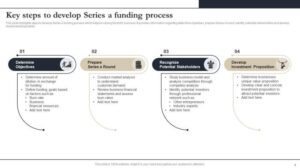
Telesales call scheduling tools have become essential in modern sales strategies, transforming the way businesses connect with clients. These tools not only simplify the scheduling process but also enhance productivity by minimizing time spent on logistics and maximizing time spent on actual conversations. As sales teams worldwide adapt to the increasing demand for efficiency, understanding the features and benefits of these tools is crucial for success.
In today’s fast-paced business environment, effective scheduling can differentiate a thriving telesales team from a struggling one. By leveraging technology, businesses can optimize their call schedules, improve team collaboration, and ensure timely communication with clients, ultimately leading to better sales outcomes.
Telesales Call Scheduling Tools Overview
In the fast-paced world of telesales, staying organized and efficient is paramount. This is where call scheduling tools come into play, offering vital support in managing outreach efforts. These tools not only streamline the process of connecting with potential clients but also significantly enhance overall productivity.Effective scheduling tools are designed with features that cater specifically to the needs of telesales professionals.
Key functionalities include automated reminders, easy calendar integration, and analytics for tracking performance. By incorporating these tools, sales teams can ensure that they maximize their time spent on calls, leading to improved conversion rates and a more organized approach to client interactions.
Business Innovation in Telesales
Technology has dramatically reshaped how telesales teams approach call scheduling. Gone are the days of manual calendars and endless back-and-forth emails. Today, innovative scheduling tools offer smarter solutions that enhance efficiency and accuracy.Modern scheduling tools, such as Calendly and HubSpot, are perfect examples of how technology is advancing this field. They provide seamless integrations with other sales applications, allowing for streamlined workflows.
Unlike traditional methods that often lead to scheduling conflicts and missed opportunities, these tools ensure that appointments are managed with precision, reducing stress for sales teams.
International Business Considerations
Telesales call scheduling varies significantly across different countries, influenced by diverse cultural norms and business practices. Understanding these variances is crucial for international sales teams aiming to connect with clients worldwide.Cultural factors, such as communication styles and preferred meeting times, play a significant role in shaping telesales strategies. Additionally, time zones can complicate scheduling calls. Tools that automatically adjust for time differences, like Time Zone Converter, help avoid confusion and ensure that clients are contacted at appropriate times.
Business Networking and Telesales
Scheduling tools are not just about making calls; they also play a vital role in networking efforts within telesales. By organizing meetings effectively, sales professionals can build and maintain valuable relationships.To enhance professional relationships through telesales, here are some strategies:
- Utilize personalized scheduling links that cater to clients’ availability.
- Send follow-up reminders to keep engagements fresh and relevant.
- Leverage scheduling analytics to identify the best times for client interactions.
Implementing these strategies can significantly improve networking outcomes and foster stronger connections.
Sales Management and Scheduling Tools

The relationship between sales management and effective call scheduling is critical. Sales managers need to ensure their teams are using their time wisely to achieve targets. Scheduling tools facilitate this by providing insights into call activities and outcomes.Key metrics for tracking the success of telesales call scheduling include:
- Number of scheduled calls versus completed calls.
- Conversion rates from scheduled calls.
- Time spent on calls and follow-ups.
By monitoring these metrics, sales managers can identify areas for improvement and optimize their team’s performance.
Marketing Direct and Telesales Scheduling
Telesales call scheduling is closely aligned with direct marketing strategies. The integration of scheduling tools in marketing campaigns can lead to more systematic outreach efforts.Successful integration methods include:
- Using scheduling tools to align calls with marketing campaign timelines.
- Automating call scheduling based on lead responses from marketing platforms.
- Tracking engagement data to refine future marketing strategies.
These integrations can enhance the effectiveness of marketing campaigns, driving better results in telesales.
Business Outsourcing and Telesales
Outsourcing telesales functions can significantly impact scheduling processes. Outsourced teams can utilize scheduling tools to maintain efficiency and ensure consistency in client outreach.Insights on utilizing scheduling tools by outsourced telesales teams include:
- Implementing shared calendars to maintain visibility across teams.
- Using task management features to assign calls based on team member availability.
- Incorporating performance tracking tools to measure effectiveness.
While outsourcing can offer flexibility and cost savings, it is essential to manage scheduling carefully to prevent potential pitfalls.
Business Productivity and Scheduling Tools
The impact of effective scheduling on overall business productivity cannot be overstated. By ensuring that sales teams are organized and focused, scheduling tools can drive significant improvements in performance.Methods to measure productivity improvements from using scheduling tools include:
- Comparing pre- and post-tool implementation conversion rates.
- Tracking the time saved on scheduling tasks.
- Assessing team satisfaction and engagement levels.
A compilation of various scheduling tools that enhance productivity in telesales environments can include:
- Calendly
- Salesforce Scheduler
- Acuity Scheduling
Sales Training and Telesales Tools
Training sales teams on effectively using scheduling tools is essential for maximizing their benefits. Continuous learning ensures that teams stay updated on best practices and can fully leverage these tools.Recommendations for training include:
- Conducting workshops focused on tool functionalities.
- Creating user manuals and resources for reference.
- Encouraging peer-to-peer learning and sharing of best practices.
These training initiatives can help enhance telesales call scheduling practices and ensure alignment across the team.
Team Building Through Effective Scheduling
Scheduling tools can foster collaboration within sales teams, ultimately leading to improved team performance and morale. By creating a shared understanding of call schedules, teams can work more cohesively.Strategies for fostering team collaboration include:
- Utilizing shared scheduling platforms for visibility on team activities.
- Encouraging joint calls to enhance team learning.
- Setting up regular check-ins to discuss scheduling and strategies.
Action items for team leaders to improve scheduling practices include developing a team calendar and promoting open communication regarding scheduling challenges.
Workplace Communication in Telesales
Communication is pivotal in the context of telesales scheduling. Clear communication minimizes misunderstandings and ensures that all team members are on the same page.Techniques for improving communication around scheduling calls include:
- Using collaborative tools for real-time updates on schedules.
- Establishing clear protocols for notifying changes in availability.
- Encouraging regular team meetings to discuss scheduling strategies.
A list of tools that facilitate better workplace communication in telesales includes:
- Slack
- Microsoft Teams
- Trello
Small Business Telesales Strategies

Small businesses face unique challenges with telesales scheduling, often lacking the resources of larger corporations. Tailored strategies can help these businesses optimize their scheduling efforts.Effective strategies for small businesses include:
- Leveraging free or low-cost scheduling tools to manage calls.
- Implementing flexible scheduling practices to accommodate clients’ needs.
- Focusing on building relationships through personalized communication.
Highlighted success stories of small businesses effectively utilizing telesales tools demonstrate that with the right approach, even smaller entities can thrive in a competitive market.
Risk Management in Telesales
Ineffective telesales scheduling can pose several risks, ranging from lost leads to damaged client relationships. Identifying these risks is the first step towards mitigating them effectively.Strategies for mitigating risks through proper scheduling practices include:
- Establishing clear guidelines for call timing and follow-ups.
- Regularly reviewing and adjusting schedules based on feedback.
- Utilizing analytics to identify and resolve scheduling conflicts.
A framework for assessing the risks of telesales operations can include evaluating lead response times and tracking engagement metrics.
Business Presentations and Scheduling
Scheduling tools are invaluable in planning business presentations via telesales. These tools help ensure that all stakeholders are available and prepared for important discussions.Tips for coordinating schedules for successful presentations include:
- Setting presentation times that accommodate all participants.
- Using scheduling tools to send calendar invites and reminders.
- Gathering feedback post-presentation to refine future scheduling practices.
The impact of effective scheduling on presentation outcomes can be profound, enhancing clarity and engagement during discussions.
Venture Capital and Telesales
Telesales scheduling tools can be a key factor in attracting venture capital interest. Investors often look for businesses that demonstrate efficiency and innovation in their operations.Building a strong business case for investing in telesales technologies involves showcasing the potential return on investment and how scheduling tools can drive sales growth. Companies that have successfully received venture funding due to innovative telesales practices illustrate the importance of staying ahead in this competitive landscape.
End of Discussion
In conclusion, embracing telesales call scheduling tools opens up a world of opportunities for enhancing business efficiency and driving sales growth. As technology continues to evolve, staying informed about the latest innovations in scheduling will empower sales teams to adapt and thrive in a competitive landscape. The right tools not only streamline operations but also foster relationships that can lead to long-lasting success in telesales.
FAQ Resource
What are telesales call scheduling tools?
These are software applications designed to help sales teams efficiently schedule and manage their calls with clients.
How do these tools improve productivity?
By automating scheduling tasks and reducing back-and-forth communications, they allow sales representatives to focus more on selling rather than logistics.
Can scheduling tools integrate with other sales software?
Yes, many scheduling tools offer integration capabilities with CRM systems and other sales management software to streamline workflows.
Are there specific features to look for in these tools?
Key features include calendar syncing, automated reminders, analytics, and user-friendly interfaces.
How can small businesses benefit from telesales scheduling tools?
They help small businesses optimize their limited resources by improving call efficiencies and enhancing customer relationships.



